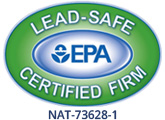What’s Causing Your HVAC System to Smell?
 Depending on the season, you turn on your home’s HVAC system for heat or air conditioning. Once you hear it power up, you’re overwhelmed with a strong odor – perhaps musty, burning or like rotten eggs.
Depending on the season, you turn on your home’s HVAC system for heat or air conditioning. Once you hear it power up, you’re overwhelmed with a strong odor – perhaps musty, burning or like rotten eggs.
You might dismiss it, thinking the smell will go away after a few minutes but it never does. Instead, the unpleasant odor permeates the air. What could be the cause of this unusual smell – do you need a professional to resolve the issue?
Here are several common smells associated with the performance of your HVAC system.
Musty
Mold, bacteria and fungus can travel through your HVAC system, multiplying and spreading. A musty or dirty laundry scent often indicates your HVAC system harbors mold, even if you can’t see it.
Mold affects the air quality and likely means you’re breathing in spores. This issue could become particularly serious if someone in your home lives with a health condition.
Why might mold be forming in your HVAC system? This issue frequently goes back to the condensate drain. It could be clogged, causing mold to build up on the condenser, evaporator coil or in the ductwork and spores spread throughout the system.
Especially if you haven’t used your HVAC system in months, which could be the case for businesses during the COVID-19 pandemic, these conditions allow mold, fungi and bacteria to spread without interference. Have an HVAC technician identify the source and help with long-term maintenance techniques, like adding a dehumidifier to control humidity or a UV light to kill fungi.
Burning
That’s not toast you’re smelling! If the air from your HVAC system smells like burning food or plastic, it could be an electrical issue. Parts may need to be replaced or an older system overhauled altogether.
If you haven’t used the furnace for a couple of seasons, you may notice a burning smell once its turned on. This happens as a result of dust accumulating on the heat exchanger and burning off once the system is activated. After a few minutes, this smell should gradually dissipate.
Yet if the smell continues to come from your vents, a burning scent can indicate something within your HVAC system is overheating, which restricts airflow in the process.
Rotten Eggs
When you notice a rotten egg or sulfur smell, your home could have a gas leak. One of the most serious issues involving your HVAC system, you need to turn off the heat immediately, open all windows and go outside to call for assistance.
Although this issue can have a few sources, a leak from a furnace burning natural gas is a common reason. When you turn on the HVAC system, the leaking gas is able to quickly spread via the ducts.
If a utility or gas company cannot identify the source, your ducts could hold decomposing matter contributing to this smell. In this case, have a professional thoroughly examine the HVAC system.
Sewage
Similar to gas, the stench of a sewage leak can spread through your HVAC system. If your ducts or other HVAC components are situated close to a pipe or waste line, your home is more likely to have this issue.
Similar to a natural gas leak, sewage gives off methane gas, which should not be inhaled. In this scenario, you’ll need a plumber to address the sewage backup or leaking line, then work with an HVAC technician.
On the other hand, if the line is intact, the scent could go back to a dirty or clogged filter that’s negatively affecting both the indoor air quality and the performance of your system.
Acetone
Acetone, the key ingredient in nail polish remover, has a particularly pungent smell. If you smell acetone, your home could be dealing with a refrigerant leak, which can decrease your HVAC system’s efficiency and poses a fire hazard due to its flammability.
Household Odors
If you notice any of the following smells, household odors may be traveling through your HVAC system:
- Smoke: Different from a burning scent, this can indicate cigarette or tobacco smoke is circulating through the system. This scent may also indicate your furnace is leaking oil.
- Pet Odors: While not a significant cause for concern, it can indicate hair and pet odors are circulating through the ducts and air, which may aggravate someone’s allergies.
- Urine: If your vents emit the smell of urine, your home may be dealing with a rodent infestation – particularly mice or rats, who are known to build nests in ductwork.
If you’re dealing with any of these furnace issues, reach out to MJ Fahy & Sons to have our HVAC technician assess your HVAC system. To request service, contact us today.




